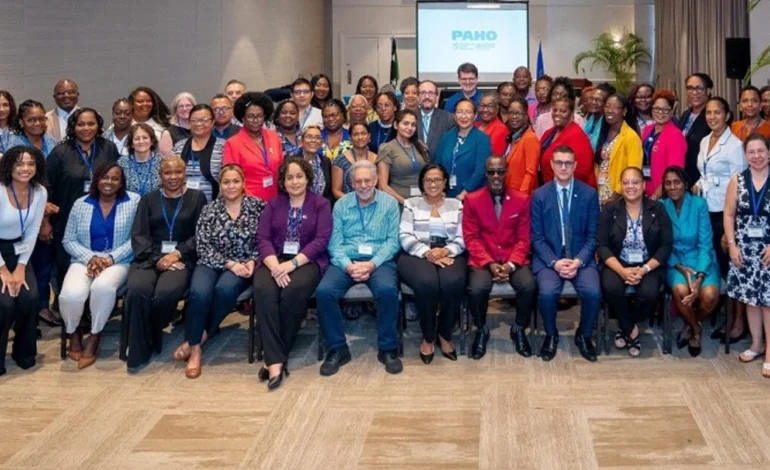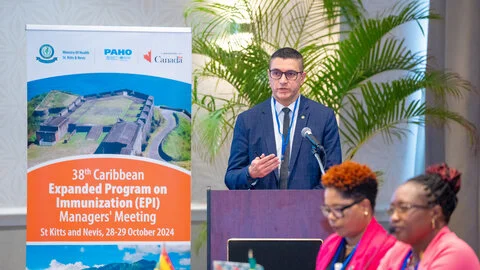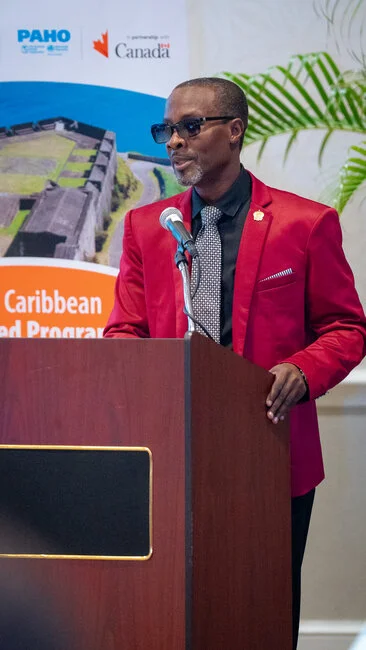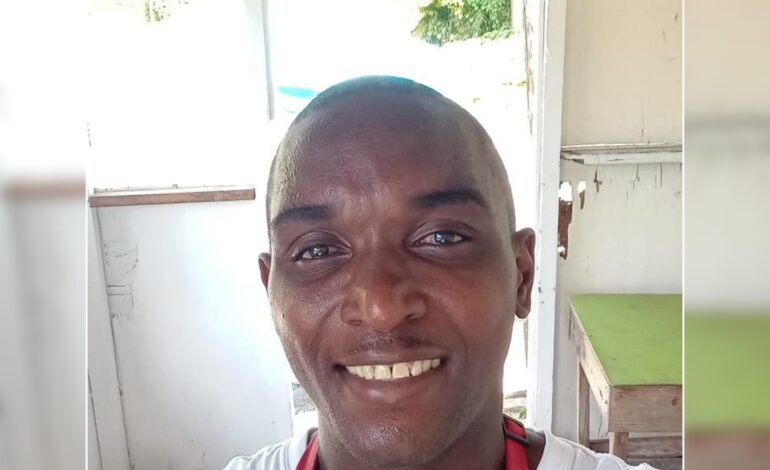
During the 38th Caribbean Expanded Program on Immunization (EPI) Managers meeting held in St Kitts and Nevis, from October 28-30, PAHO Assistant Director, Dr Rhonda Sealy, commended the Caribbean Immunization managers for beginning to turn around vaccination coverage across CARICOM Member States, after a decline in 2020 and 2021 due to the COVID-19 pandemic and stressed the need to strengthen the Human Papillomavirus (HPV) vaccination program.
Noting that there were still significant challenges, including vaccine hesitancy and disruptions in school and health facility access, she called for a revitalization of this essential program, particularly within the Cervical Cancer Elimination Initiative, and as many countries are transitioning to a one-dose schedule as recommended.
To ensure our continued success, I’d like to highlight several recommendations. Firstly, we need unwavering political commitment and financial resources to maintain our targets for eliminating polio, measles, and rubella, as well as controlling other vaccine-preventable diseases. It’s imperative to strengthen our vaccination operations to achieve and sustain a 95% coverage rate for all antigens. Additionally, we must develop targeted strategies to reach children under five years old, enhancing our surveillance capabilities for vaccine-preventable diseases. Training healthcare workers in effective risk communication and community engagement is vital for improving HPV vaccine coverage. Finally, we must invest in robust data systems and infrastructure to support adult immunization without jeopardizing childhood vaccination programs.” Dr Sealy noted in a video message.

Dr. Daniel Salas, Executive Manager, Special Program on Comprehensive Immunization, PAHO, emphatically reiterated PAHO’s support for HPV vaccination programs in the Caribbean stating that “the Caribbean is known to be a leader in vaccination and disease elimination, I urge you to be the first subregion to eliminate cervical cancer reducing morbidity and mortality associated with this preventable disease”.
During the meeting, Jamaica won the coveted Harry Smith Award for most improved immunization coverage in 2023 while the inaugural Beryl Irons Award went to Grenada for achieving their surveillance targets in 2024 and improved immunization coverage in 2023. Three countries also took away surveillance awards. In first place was Barbados, second place went to St Kitts and Nevis and third place went to Belize.
The dedicated healthcare professionals of the EPI program and PAHO were praised by Permanent Secretary, Ministry of Health in St Kitts and Nevis, Curtis Martin. He emphasized that national health stewardship requires partnership. “PAHO is a blessing. Its technical support of the EPI ranks as a global best practice. Transfer of knowledge and skills have yielded measurable results including the regard for research rigor and the imperative of data and evidence-guided planning and performance assessment and improvement. Through PAHO and other public health protection, prevention and health promotion are in our DNA. PAHO cannot become weary in Caribbean well-being because in our jurisdictions, health is too big to fail,” he asserted.

Delivering remarks on behalf of PAHO/WHO Representative for Barbados and the Eastern Caribbean Countries, Dr Amalia Del Riego, Advisor, Family and Life Course for Primary Health Care, Dr Solange Kobi-Jackson, described the implementation of solid vaccination programs as one of the noblest commitments to the population, especially protecting the health of children.
“The positive result for 2023, reflects the efforts of professionals and the health system, as well as the government’s clear political commitment to invest in health, along with an engaged population that recognizes the importance of vaccination. Nonetheless, it is necessary to continue making progress to bring the Region of the Americas back to the top of the global ranking in immunization coverage, maintain our achievements, and advance in the strategy to eliminate communicable diseases,” Dr Kobi Jackson stressed.
While aware of polio, pertussis and measles cases worldwide, Chair of the Meeting and the Caribbean Immunization Technical Working Group (CITaG), Prof Peter Figueroa, praised the EPI Program for contributing considerably to the decrease in deaths and an improvement in the health of children globally and within the Caribbean. “An estimated 154 million deaths averted – that is remarkable and represents the true value of vaccines… However, we cannot be complacent. We have to be alert.” He called on Caribbean countries to maintain vaccination rates of 95% or higher and increase surveillance.
The meeting also included an ‘Effective Communication for Vaccine Uptake for Caribbean EPI Managers workshop’ which included presentations on risk communication and community engagement, increasing vaccination coverage using the behavioural and social drivers of vaccination, crisis communication and vaccination messaging. The group also participated in a panel discussion that highlighted the risk communication strategies used in the measles case management employed by Turks & Caicos, plans to create a risk communication plan for new vaccine rollouts by Grenada and the role of communications during an ESAVI by Suriname.
Caribbean EPI meetings are held annually, and this year’s theme was Stronger Together: Advancing Immunization, Eliminating Disease.






